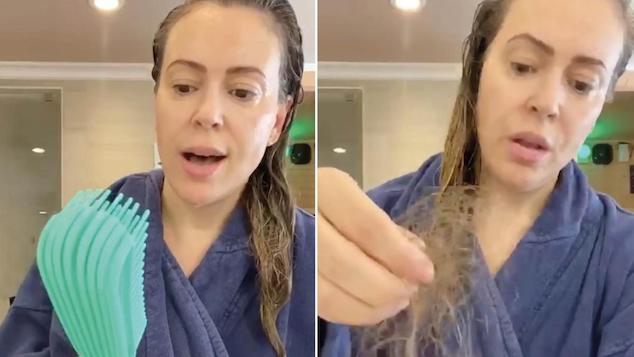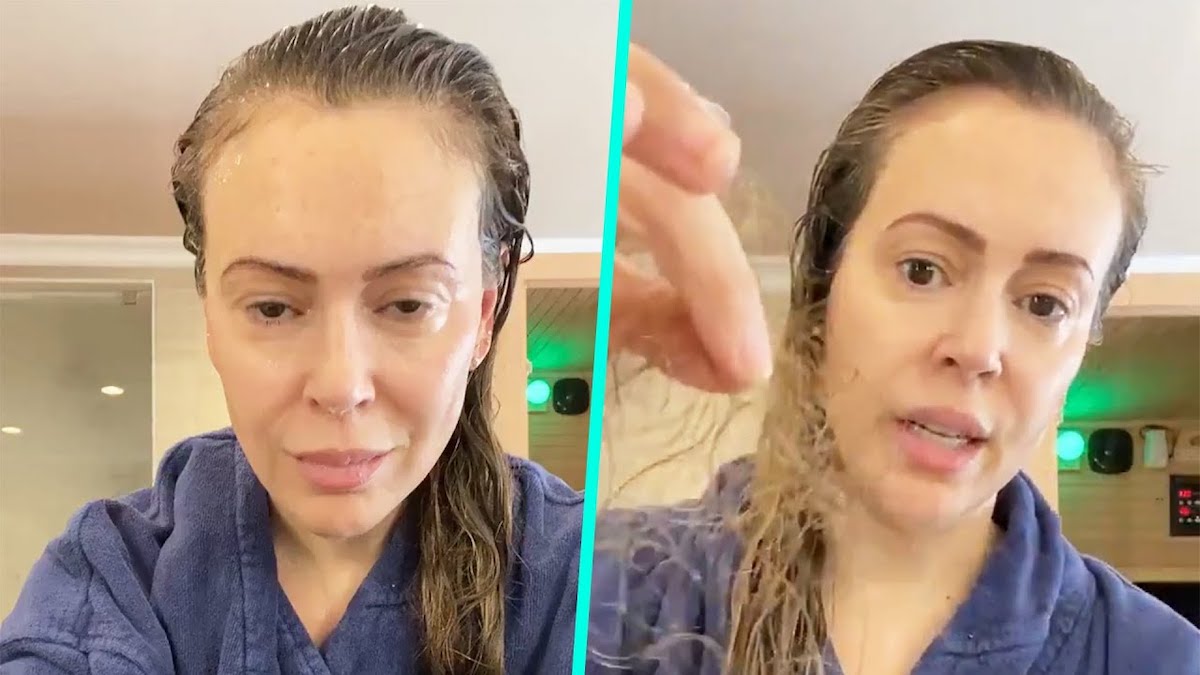

COVID-19 hair loss: How the pandemic has resulted in some infected people losing their hair as a symptom of the disease and the treatment available to regenerate hair growth.
2020 was called a crazy year. 2021 has continued with the same craziness if it has not been raised. Once-a-century pandemic has taken a heavy toll on humans all around the world. Scientists are still trying to understand the wide spectrum of clinical symptoms caused by COVID-19 namely, hair loss.
We all know that cough, fever, shortness of breath are the cardinal symptoms of coronavirus. However, the virus isn’t limited to these symptoms. It’s a giant. We hear a new sign or symptom every new day. It all started from fever and now it has reached the gastrointestinal system. It’s not over yet.
Is COVID-19 related to hair loss?
Well. Hair loss isn’t quite new, as you may have pondered already. Generally, many factors can cause hair fall including age, genetics, gender patterns, etc. Certain medications can cause hair to fall out. Drugs used in chemotherapy against cancers are examples of it. So, that hair loss isn’t a new thing.
What’s new is the increase in the reports of hair loss in persons surviving COVID-19. So, if your hair is shedding at an increasing speed, this can be another feature of the virus. Hair loss is one of the recently recognized features of COVID-19. Both the healthcare community around the world and celebrities have brought this topic into the spotlight.
The issue came into the spotlight recently when our favorite actress Alyssa Milano posted her picture on Instagram showing COVID-related hair loss (see Instagram post below). This prompted many COVID-19 survivors to have a look at their increased rate of hair fall. They found their answers: COVID-19 was causing their hair loss.
View this post on Instagram
What research says?
One of the scientific breakthroughs in this regard was the survey of Dr. Natalie Lambert, Indiana University School of Medicine and Survivor Corps. Survivor Corps is a grassroots movement of volunteers who survived COVID-19. The main purpose of this movement is to connect the COVID-19 survivors with the health community around the world.
The results of this survey were eye-openers as around one-third of COVID-19 survivors reported suffering from hair loss even months after infection. Likewise, a study conducted by The Lancet showed that 22% of persons surviving from COVID-19 reported hair fall. These results indicate that cases of hair loss due to this pandemic were underreported.
You won’t find some good data about hair loss in WHO or CDC. However, the survey by Dr. Natalie and the results of students by the Lancet prompted scientists to conduct more research on this subject. Consequently, the topic of hair loss in COVID-19 survivors is gaining the due importance that it needs.
What caused COVID-19 hair loss?
If you are wondering how SARS-CoV-2 causes hair loss, we’ve got you covered. Though the medical community has just started researching the incidence and mechanism of hair loss in COVID-19 survivors, there are some well-established facts. One of these facts generally agreed between healthcare professionals is Telogen Effluvium.
This catchy term is used for the temporary hair loss caused by any of the factors from a wide array of stressful events. Telogen Effluvium is not specific to a particular area of the head. It affects all over the head. To make things more interesting there are now reports of hair loss in persons stressing out due to this pandemic even without contacting the virus.
This can be due to joblessness, quarantine, or other changes in the daily life cycle. COVID-19 is associated with exacerbating these factors. It has increased unemployment and has disrupted the social and economic activities around the world completely.
It is explained further as when you’re suffering from COVID-19, it is a strong signal for the brain to increase the blood flow towards the vital organs. Your body just focuses on fighting the deleterious effects of COVID-19. It tries to protect your brain, lungs, and heart first.
Hair doesn’t remain a priority then. This causes your hair to enter a resting phase, called the telogen phase. The purpose of all this is to help your body focus on more essential tasks.
When the circumstances get better and your body successfully wins the fight against whatever threatening event was i.e., COVID-19, hair starts regrowing. Regrowing of hair will push the old resting hair out. This phenomenon will manifest as hair falling out. It usually occurs four to six months after entering the telogen phase.
How much hair loss are we talking about?
Normally, 15% of your hair is in the telogen phase. However, due to Telogen Effluvium (TE), this percentage can rise to 50%. Consequently, hair loss in Telogen Effluvium would be much higher than the shreds of hair that you see in your comb or on the bathroom floor. The amount of hair loss is different for different individuals. This amount is mainly related to the extent and nature of stress.
Will your hair return?
The good news is that hair will regrow in most people. Normally, it would take around six months for your hair to grow back to its normal pattern. The growth of hair starts when the stressful event is resolved. A point to note here is that there is a condition known as Chronic Telogen Effluvium. In this condition, you shred significant hair daily but this is a very rare condition.
What can you do about your hair loss?
The best treatment for hair loss due to COVID is patience, and this is undoubtedly the hardest kind of treatment to follow. Hair loss resolves itself. However, another best thing that you can do is to manage the underlying stressful conditions. Meanwhile, watch out for medical conditions other than COVID-19 that may be exacerbating your hair loss. You can consult your dermatologist for an expert opinion. He can evaluate you properly and can recommend you the best management plan.
Adopt a healthy lifestyle. Consume a balanced diet and take special care of your hair. Be very choosy about the hair products that you use while suffering from hair loss.
So, take great care of yourself. Stay healthy and stay stress-free!






